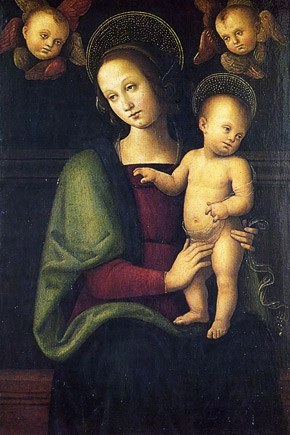keepboyspure:If we think psychologically, or even anthropologically, rather than theologically, why
keepboyspure:If we think psychologically, or even anthropologically, rather than theologically, why and how was it that Jesus became special? What made Him different from the other boys? We know that His father did not play a role in the normal way: he may have been there to raise the young Jesus, but the latter was undoubtedly more His mother’s boy than Joseph’s, hence the many paintings of Madonna and Child. Was Christ unusually close to his mother? Did she give her little boy protection, special protection, in a way that both embodies the maternal and exceeds it? How did the exceptional qualities of Jesus survive and persist beyond the behavioral ravages of adolescence? Does the near absence of paintings of a teenage Jesus, of His “unknown years”, reflect a preference not to depict what turn or what continuation His maternal relationship may have taken, or was bound to have taken? If Jesus was fully human, then He was fully a man. Did, then, His tumescence have to be brought under earthly control for His spirit to have the possibility of elevating to the divine? Even leaving aside the question of the actual life of Jesus, what truth about the basis of exceptionality in Western culture is revealed by these questions? What secrets have we yet to learn or comprehend?Here you raise questions of a most delicate nature, that take your preoccupation with purity to the brink of the impure, or to a reconsideration of the basis of their distinction and difference. Perhaps this is sublimity itself. Or sublimation. -- source link




